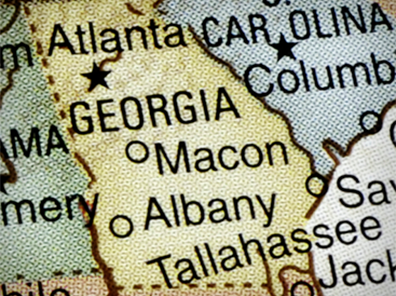
If politics makes for strange bedfellows, then how much truer that is where immigration politics is concerned. The most recent proof of that was occasioned by a public hearing on an amendment to a bill introduced into the Georgia House of Representatives.
The bill is short and straightforward: It would require the Georgia Department of Corrections (DOC) to maintain statistics regarding the number of alien prisoners in its custody; what percentage they compose of the total population of state prisoners, with breakdowns by nationality; and, importantly, those against whom Immigration and Customs Enforcement (ICE) has filed detainers with the intent of taking them into custody to begin deportation proceedings upon release. It would also require those figures to be made publicly available.
At the hearing, the Southern Poverty Law Center (SPLC) was joined by Council on American-Islamic Relations (CAIR) to argue against the bill, which we know courtesy of D.A. King, who attended the hearing and took a photo of the sign-in sheet.
This brings us back to that question of strange bedfellows, in this case, the SPLC and CAIR. Consider:
The SPLC is prone to denunciations of a host of other organizations or individuals whose views it does not share as racists, anti-Semites, hate groups, homophobes, xenophobes, you name it. Sometimes this gets the SPLC into hot water — for instance, when it was obliged to apologize to Dr. Ben Carson for having added him to its "extremist watch list", or when it labeled Muslim reformer Maajid Nawaz an "anti-Muslim extremist" and was forced to settle a lawsuit for more than $3 million, plus a public apology. There have been op-eds in liberal newspapers such as the Washington Post suggesting that the SPLC has lost its credibility, and even the liberal journal Politico has asked the same question. Even so, the SPLC, with a huge war chest from donations of earnest liberals, remains unrepentant. (Disclosure: the Center for Immigration Studies, of which I am a fellow, is suing the president of the SPLC, and the head of its "hate" operation, under the Racketeer Influenced and Corrupt Organizations act (RICO) for having labeled our organization as a hate group.)
CAIR is a very different organization. It was an unindicted co-conspirator in a federal criminal action against the Holy Land Foundation, a donation-collections front for the HAMAS terrorist organization. The United Arab Emirates lists CAIR as a terrorist organization because of its links to HAMAS and the Muslim Brotherhood. As recently as last April, a Los Angeles CAIR official found himself scrambling after he was exposed by the media for comments likening Israel to the brutal Islamic State, which during its brief reign over swathes of Iraq and Syria, tortured, beheaded, crucified, and stoned to death unbelievers, ethnic and religious minorities, and homosexuals (the very kinds of people SPLC claims to want to protect).
It would seem, then, that the only thing that these organizations share is an antipathy for any form of immigration enforcement, or anything that exposes to the light the kind of data that the bill might require.
Returning to the Georgia bill, King notes that one Democrat arguing against the bill went so far as to predict "race wars" in Georgia's penal institutions (listen at 7:10 here).
Race wars? Really? Over the collection of data? I'm astounded, and reminded of the persecution of Copernicus and Galileo for having the temerity to use astronomical facts to establish the shape of our world and the nature of our solar system. Of course, if you choose not to subscribe to facts, you can always join the Flat Earth Society.
One wonders, what this Democrat's views are on global warming, and whether he would subscribe to the suppression of legitimate data and science to arrive at a firm conclusion one way or the other. Almost certainly not.
Similarly, one would think that data collection on Georgia prison inmates, including aliens, would be a fairly innocuous requirement — in fact, why hasn't Georgia DOC already done this of its own volition? But in the topsy-turvy world of immigration enforcement, nothing is ever straightforward.
